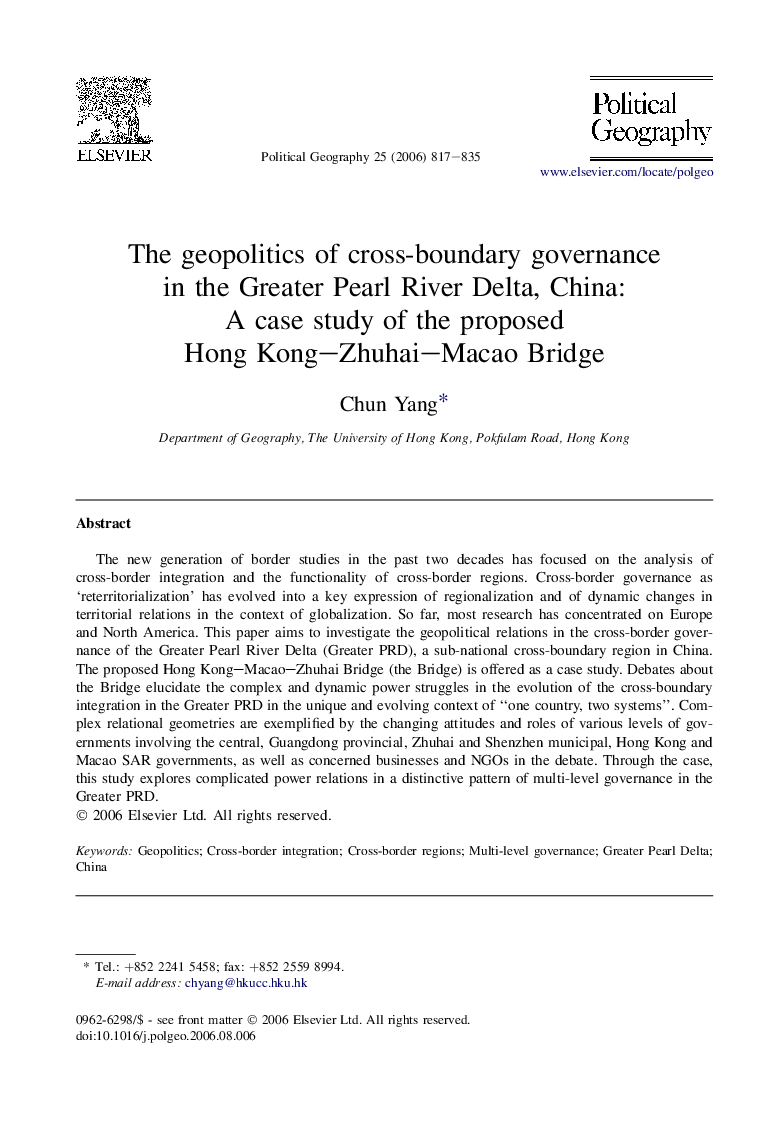| Article ID | Journal | Published Year | Pages | File Type |
|---|---|---|---|---|
| 1062594 | Political Geography | 2006 | 19 Pages |
The new generation of border studies in the past two decades has focused on the analysis of cross-border integration and the functionality of cross-border regions. Cross-border governance as ‘reterritorialization’ has evolved into a key expression of regionalization and of dynamic changes in territorial relations in the context of globalization. So far, most research has concentrated on Europe and North America. This paper aims to investigate the geopolitical relations in the cross-border governance of the Greater Pearl River Delta (Greater PRD), a sub-national cross-boundary region in China. The proposed Hong Kong–Macao–Zhuhai Bridge (the Bridge) is offered as a case study. Debates about the Bridge elucidate the complex and dynamic power struggles in the evolution of the cross-boundary integration in the Greater PRD in the unique and evolving context of “one country, two systems”. Complex relational geometries are exemplified by the changing attitudes and roles of various levels of governments involving the central, Guangdong provincial, Zhuhai and Shenzhen municipal, Hong Kong and Macao SAR governments, as well as concerned businesses and NGOs in the debate. Through the case, this study explores complicated power relations in a distinctive pattern of multi-level governance in the Greater PRD.
